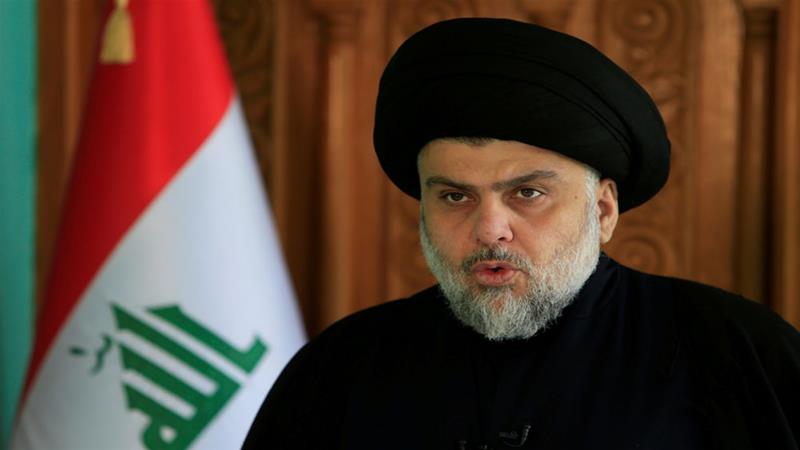Iraq election results
May 19, 2018 | Expert Insights

Anti-US and Iran Shia cleric Moqtada al-Sadr saw a major victory in Iraq’s recent parliamentary elections. His bloc won 54 seats. Meanwhile, current Prime Minister Haider al-Abadi came in third place with 42 seats.
This was the first election since Iraqi forces defeated ISIS in 2017. Voter turnout was 44.5%, the lowest since 2003.
Background
The Republic of Iraq, located in the Middle East, has a population of approximately 37 million. What is now Iraq was historically a part of the Ancient Mesopotamian civilization from 5000-3500 BCE. The region was a part of a number of empires including the Greek, Persian, and Roman. Iraq was under Ottoman rule from 1534 to 1918.
The state of Iraq as we know it today was created in 1917, when it was seized by the British. Iraq gained independence in 1932. Post World War II, the country underwent a series of coups until Saddam Hussein took power in 1979. Iran and Iraq fought a war from 1980 to 1988. Iraq’s ties with the West began to deteriorate rapidly in 1990, after it led a two-day invasion of Kuwait, followed by a seven-month long occupation of the country. Iraq’s actions resulted in the Gulf War. In 1991, Iraq was subject to a number of sanctions for its actions. A coalition of 35 nations led by the US fought Iraq to liberate Kuwait.
The US-Iraq war was part of a declared war against international terrorism and its sponsors under the administration of President George W. Bush following the September 11, 2001 attacks. Armed conflict began in 2003 with the invasion of Iraq by a United States-led coalition that overthrew the government of Saddam Hussein. The conflict continued for much of the next decade as an insurgency emerged to oppose the occupying forces and the post-invasion Iraqi government. An estimated 151,000 to 600,000 Iraqis were killed in the first 3–4 years of conflict. The war ended in 2011.
In 2014, The Islamic State of Iraq and the Levant (ISIL or ISIS), a jihadist militant group, emerged as a major force in Iraq. It drove Iraqi government forces out of key cities in its Western Iraq offensive, followed by its capture of Mosul. In October 2016, the Iraqi army launched one of its most aggressive offensives against ISIS by besieging areas controlled by ISIS in regions surrounding Mosul. ISIS was largely driven out of Iraq by late 2016, in cooperation with Shia and Kurdish forces. In 2017, it was declared that ISIS had been defeated.
Analysis
The Saeroun (Marching Towards Reform) political bloc led by cleric Moqtada al-Sadr has emerged as a major winner of Iraq’s parliamentary elections, which took place on May 12th. Saeroun is an alliance of Shi’tes, communists, and other secular groups. Sadr’s bloc won 54 seats while the pro-Iran Fatah alliance came in second place with 47 seats. Washington-backed Prime Minister Haider al-Abadi came in third place with 42 seats.
While Sadr did not stand as a candidate for Prime Minister, he played a major role in the campaign, portraying himself as an anti-corruption fighter. A populist and nationalist leader, he appealed to the growing public resentment towards Iran and the country’s corrupt political elite. He promised to build schools and hospitals and stop foreign interference in Iraq. “Reform is victorious and corruption is diminishing,” he tweeted after the results were announced.
Sadr, who is expected to play a major role in the formation of the new parliament, is anti-US and anti-Iran. Sadr is the descendant of a dynasty of Shi’ite religious scholars and the son of the late Grand Ayatollah Mohammad Sadeq al-Sadr. Sadr is the former leader of the Jaysh al-Mahdi (Mahdi Army) militia, and led two attacks on American forces after the 2003 invasion of Iraq. In 2016, he mobilised over 10,000 supporters to storm Baghdad’s fortified Green Zone.
Analysts have noted that Sadr could pose a major challenge to both Iran and the US. Prior to the elections, Iran declared that it would not allow Sadr’s bloc of “liberals and communists” to govern the country. “Iran will do everything in its power to remain strong in Iraq and to apply pressure,” noted Iraqi analyst Wathiq al-Hashimi. “It’s a very critical situation.” Iran has influenced Iraqi politics in the past. In 2010, Ayad Allawi blamed Tehran for preventing him from becoming prime minister.
Iranian general Qassem Soleimani, part of the Revolutionary Quards, is reportedly in Baghdad holding talks with politicians. Analysts have stated that Iran could attempt to maintain its power through allies such as Nouri Maliki and Hadi al-Amiri.Observers have noted that several leaders from the Popular Mobilization Force (PMF), which a 100,000-strong Iraqi militia aligned to Iran, made significant gains in the elections.
Lawmaker Dhiaa al-Asadi, part of Sadr’s bloc, said that the group would work to prevent Iranian interference. “We don’t conceal our fear that there will be some intervention and meddling either by internal or external powers, and Iran is one of them,” he said. The winning blocs will have to all agree on the nomination for Prime Minister. The government should be formed within 90 days of the official results.
Assessment
Our assessment is that the results of this election could pose a major test to Iran. Tehran considers Iraq a strategic ally in the Middle East, and is unlikely to relinquish its influence. If the next Iraqi Prime Minister is pro-Iran, it would help further solidify their power in the region. In Lebanon, Iran-backed Hezbollah recently saw a major victory. Sadr’s victory may also pose a challenge to Washington. There are currently 5,000 American troops still in Iraq. Meanwhile, the next government in Iraq will face the major challenge of post-ISIS reconstruction. Approximately 2 million Iraqis are still displaced across the country.








Comments